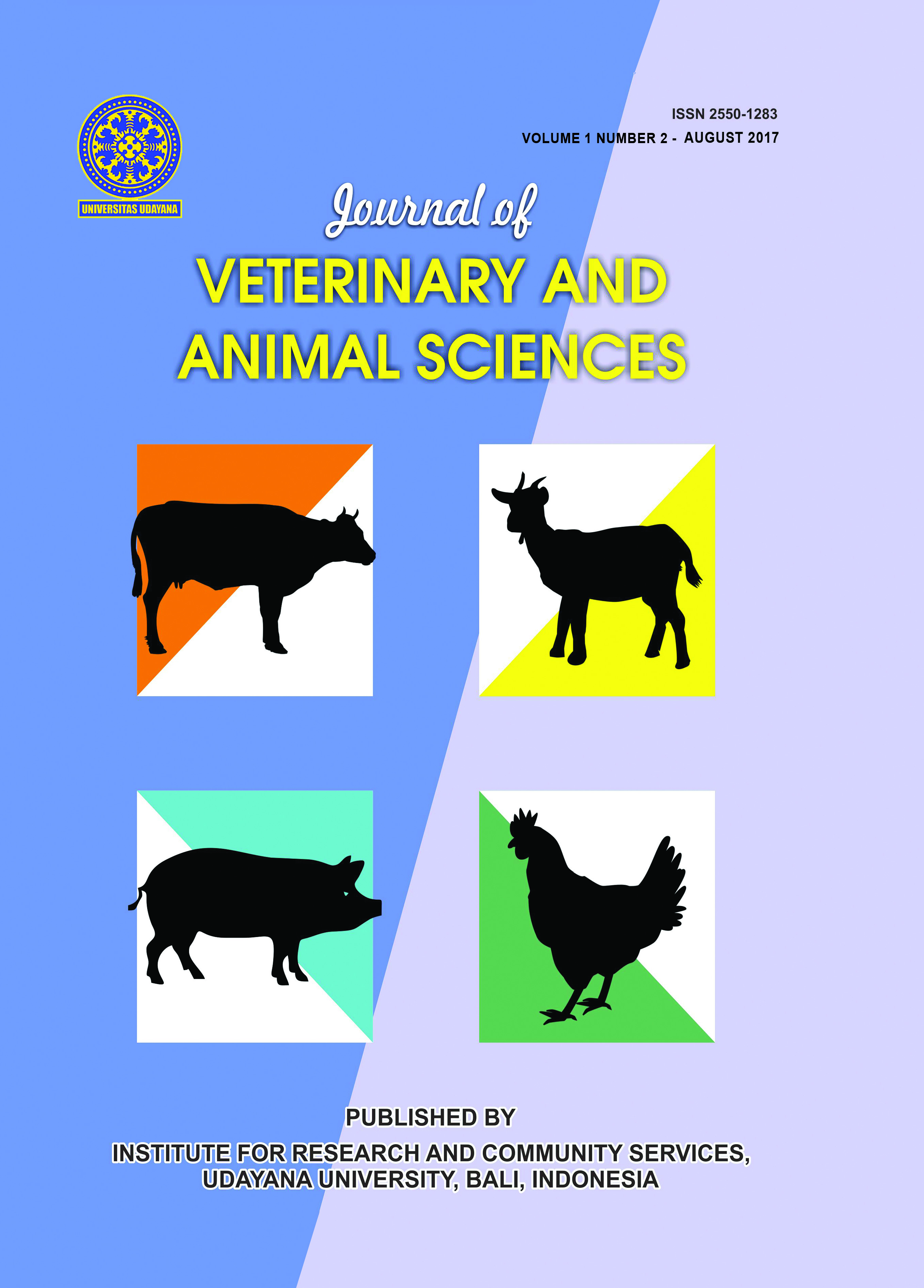The Effect of Extracellular Protein Isolated from Streptococcus bovis 9A as A Biopreservative in Beef Meat by Meansof pH Change
Abstract
Lactic acid bacteria (LAB) are a microorganism that has non-toxic properties and capable of producing antimicrobial compounds namely bacteriocin. Bacteriocin is defined as a protein compound that has a small molecular weight with antibacterial activity. The study aimed to determine the ability of extracellular protein isolated from Streptococcus bovis 9A as a biopreservative in beef. The study started by cultivation of isolate on to MRS medium, folowed by production of extracellular protein, preparation of meat samples and application of extracellular protein as biopreservative by means of changing in pH value. As many as 18 experimental combinations consist of periods of extracelluler protein immersion and periods of storage at 4ºC were applied in the study. The experiment was repeated 3 times, and pH values of each treatment were observed. Resultsof the study showed that the extracellular protein of the strain capable of inhibitingthe pH increase inthe meatand also prolong themeatstorage at 4ºCfor10 days.This result concluded that the extracellular protein of Streptococcus bovis9A is effective to be used as a biopreservative.











